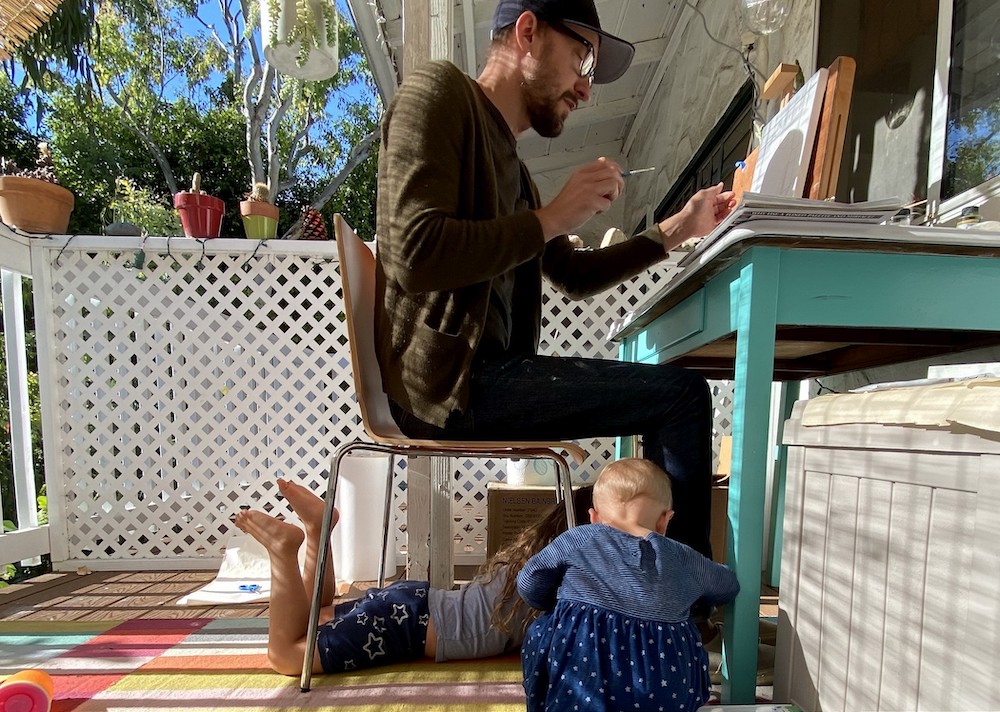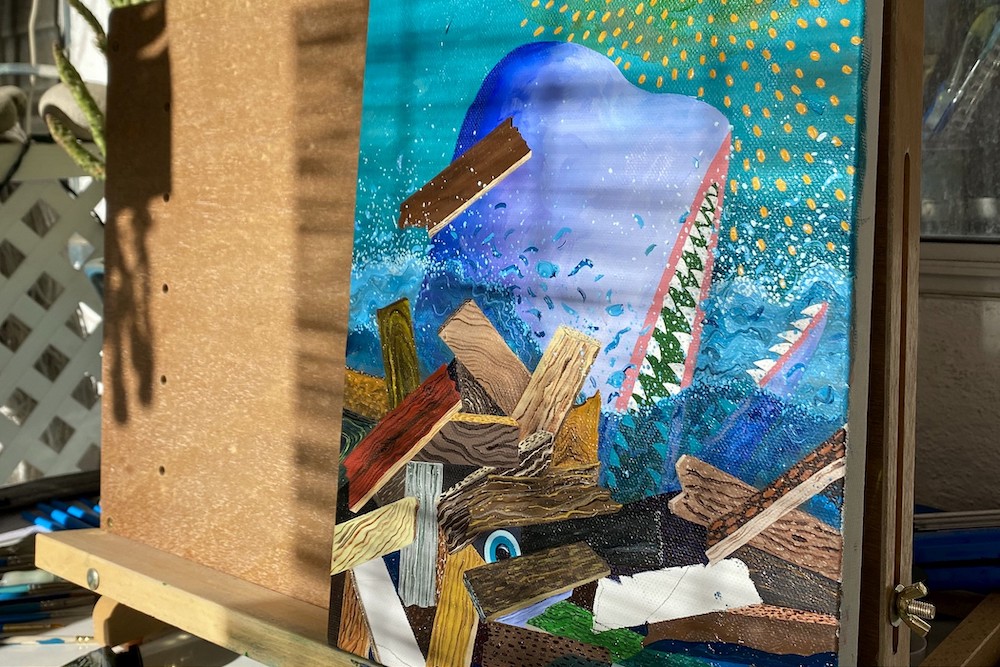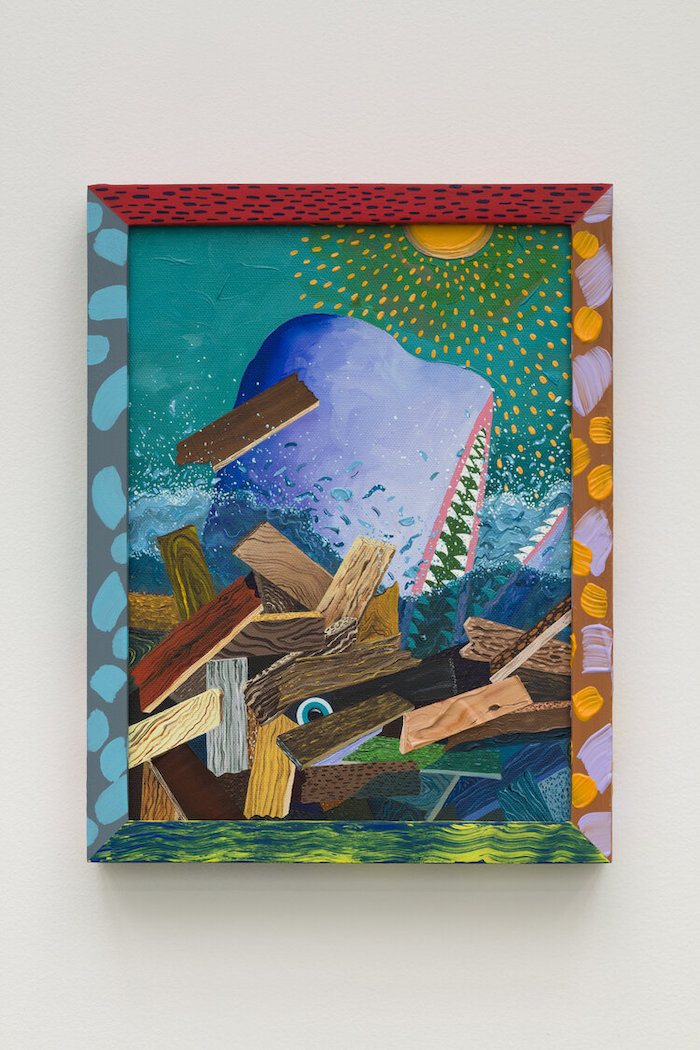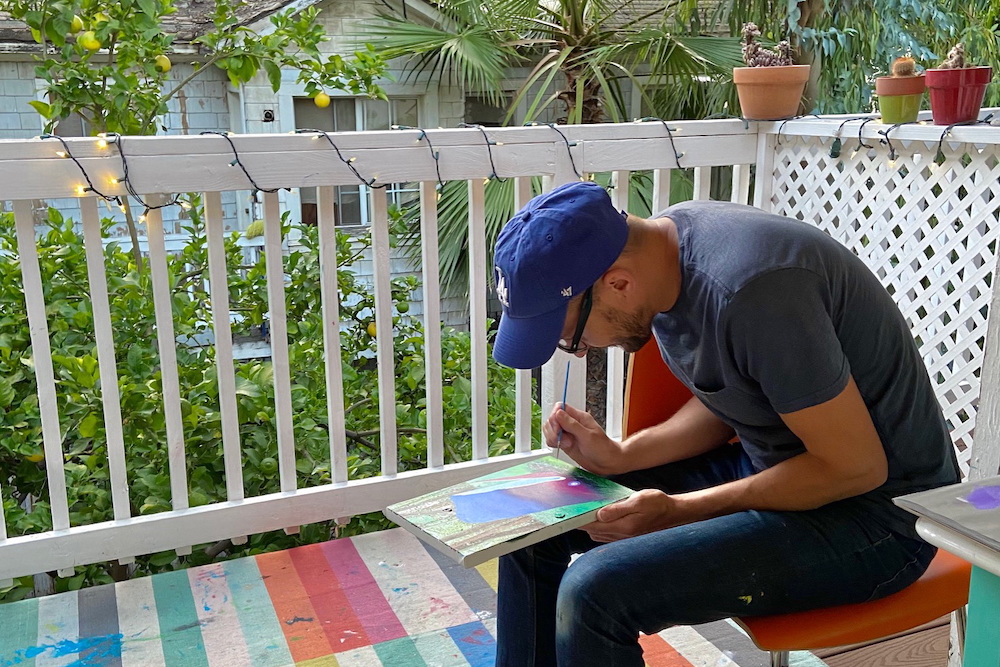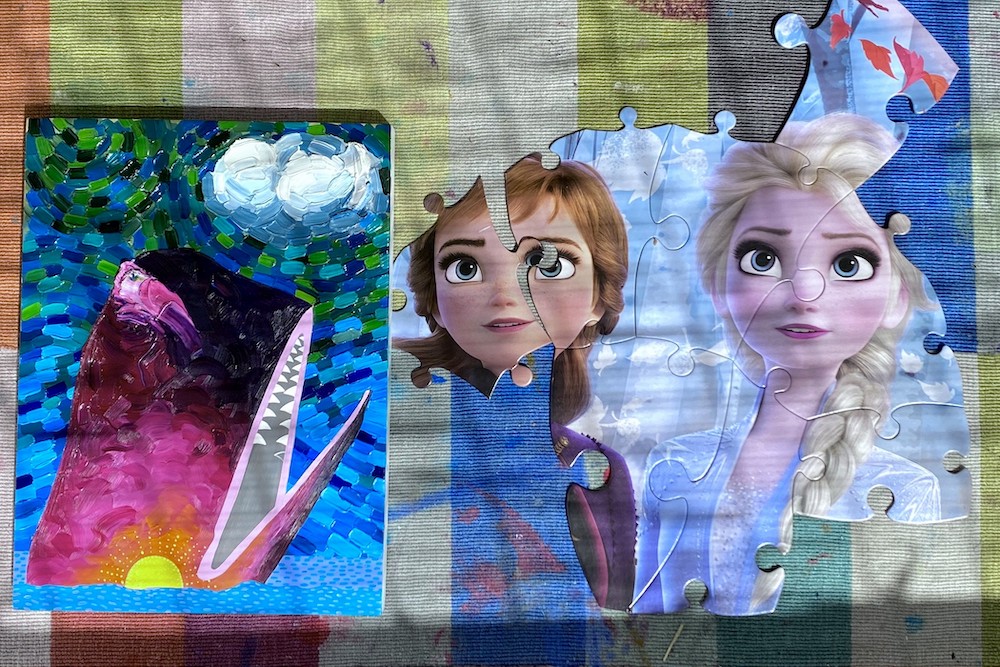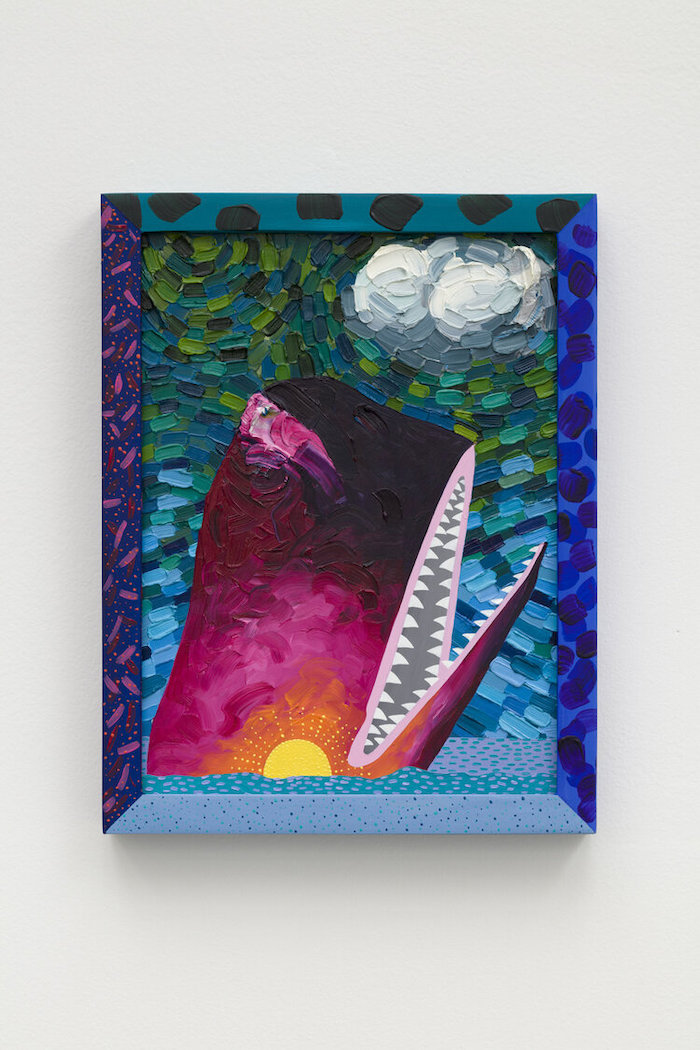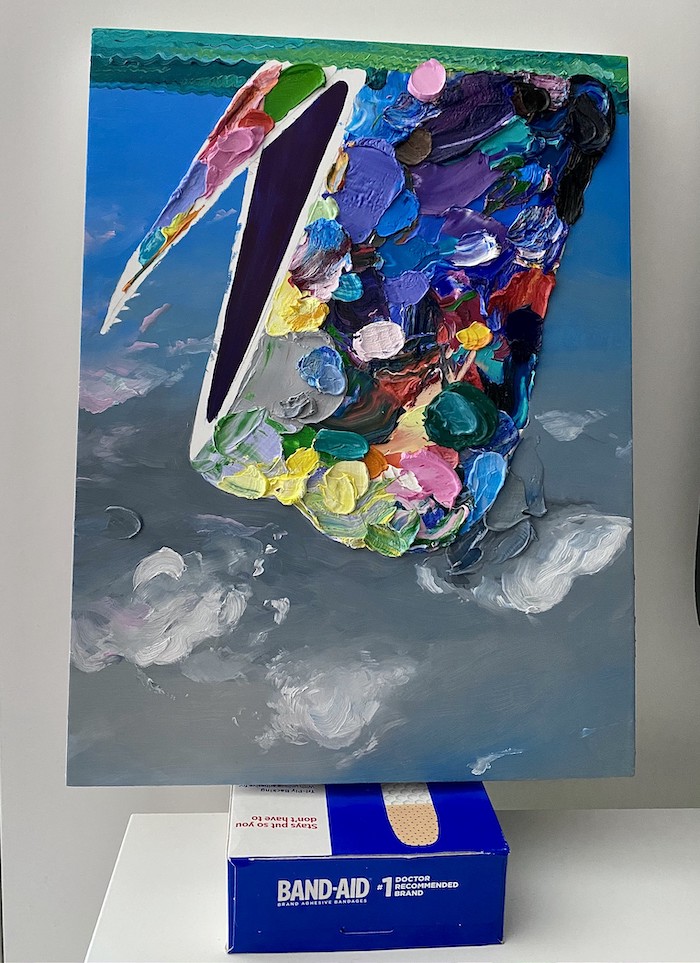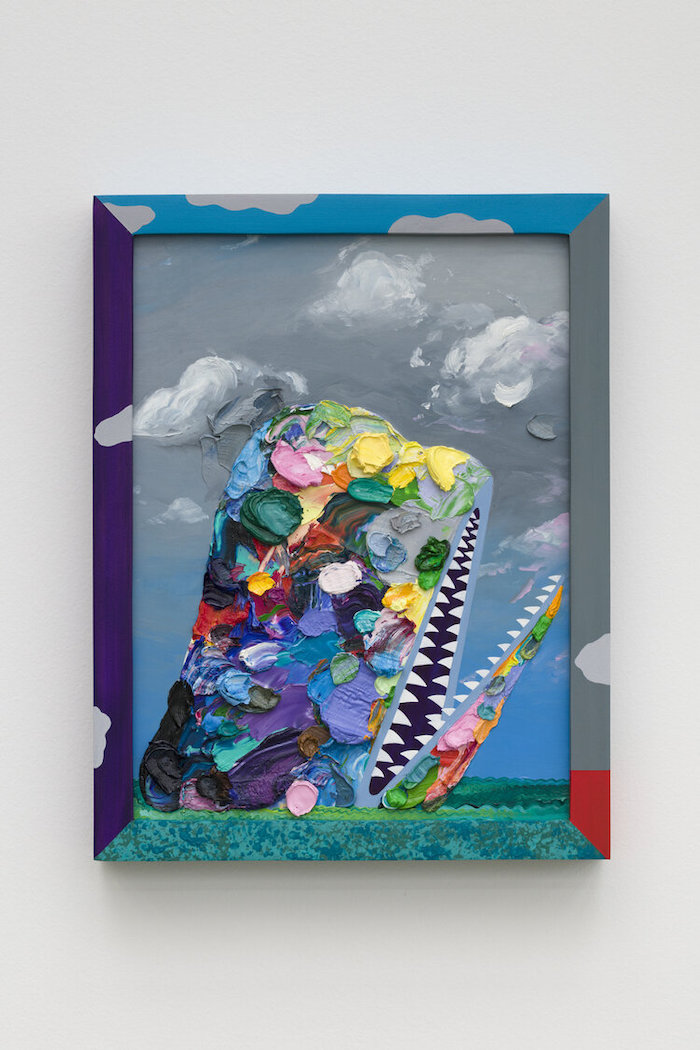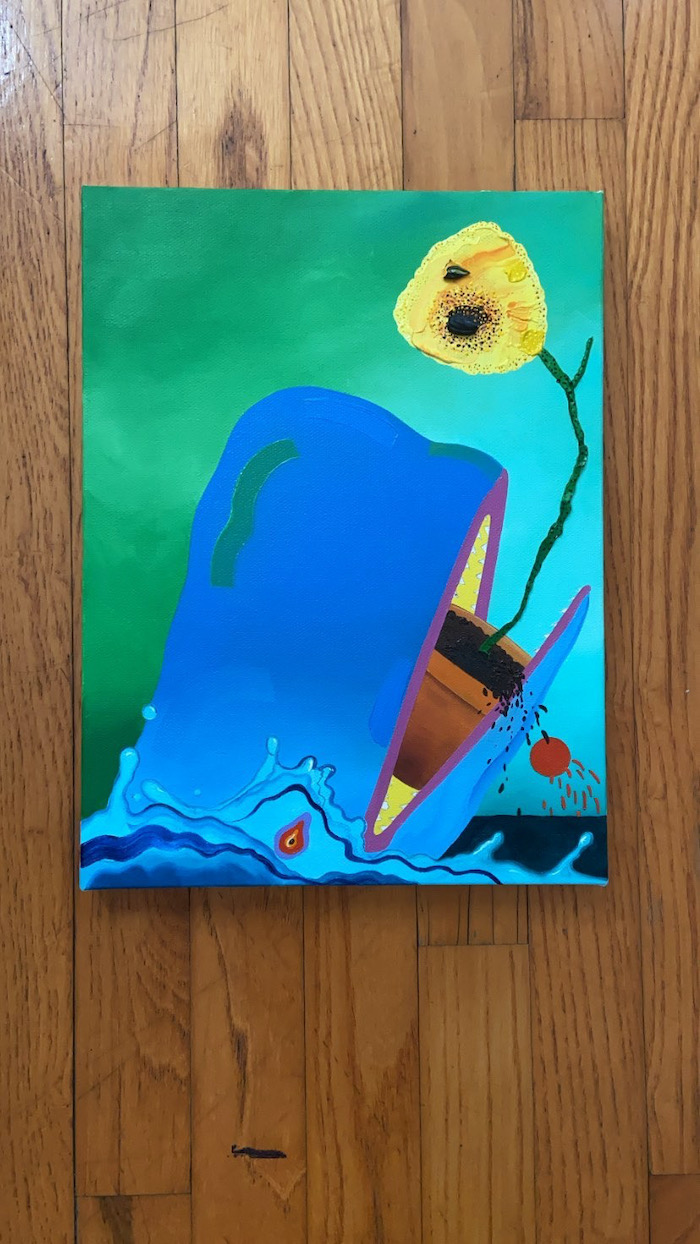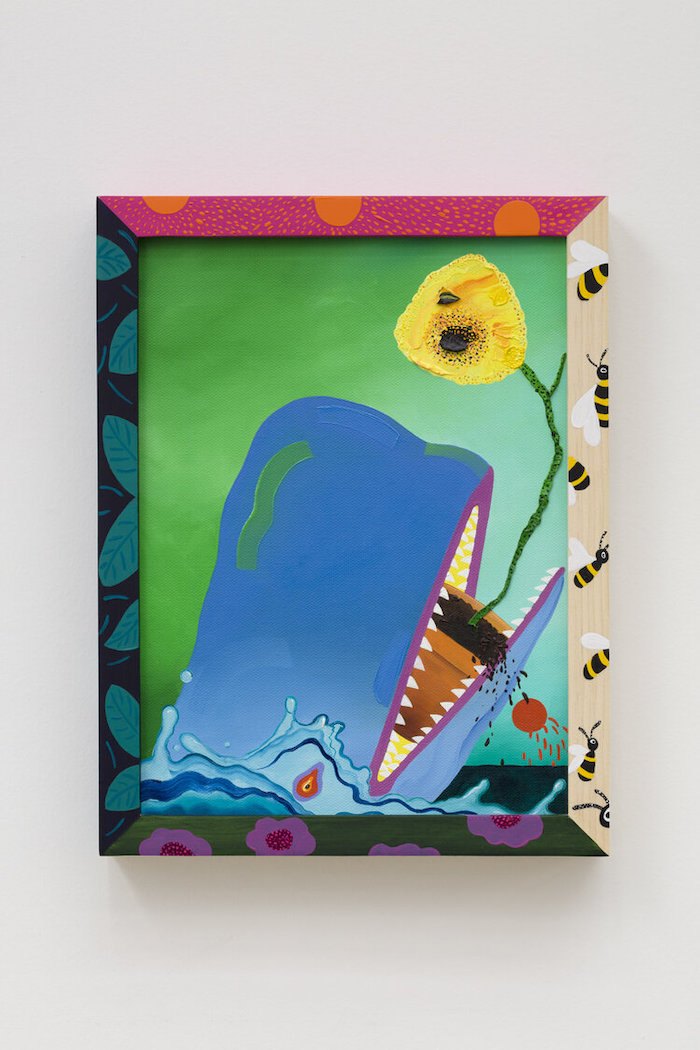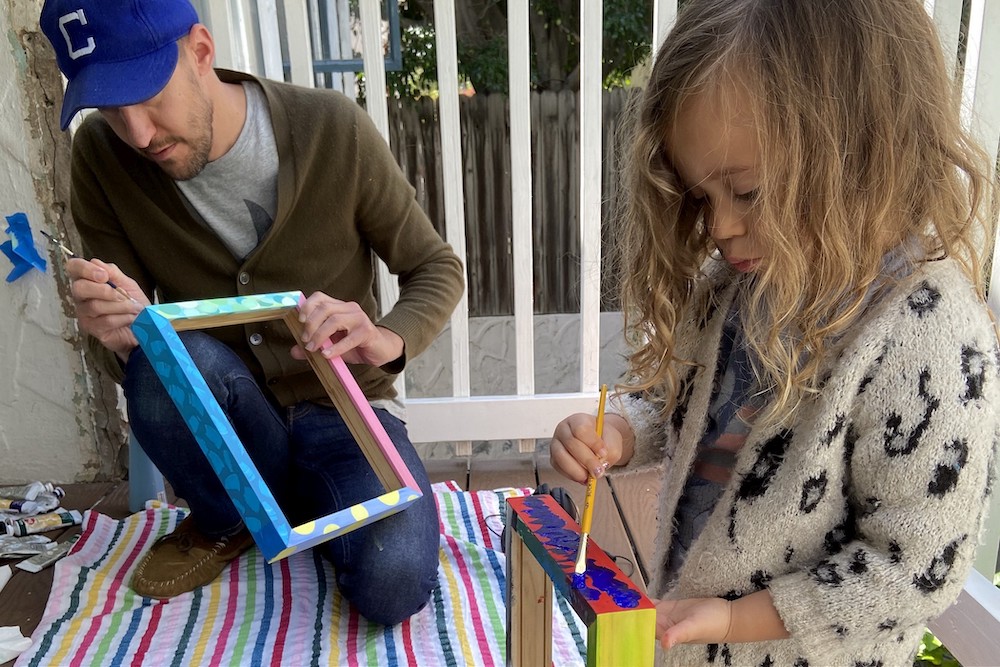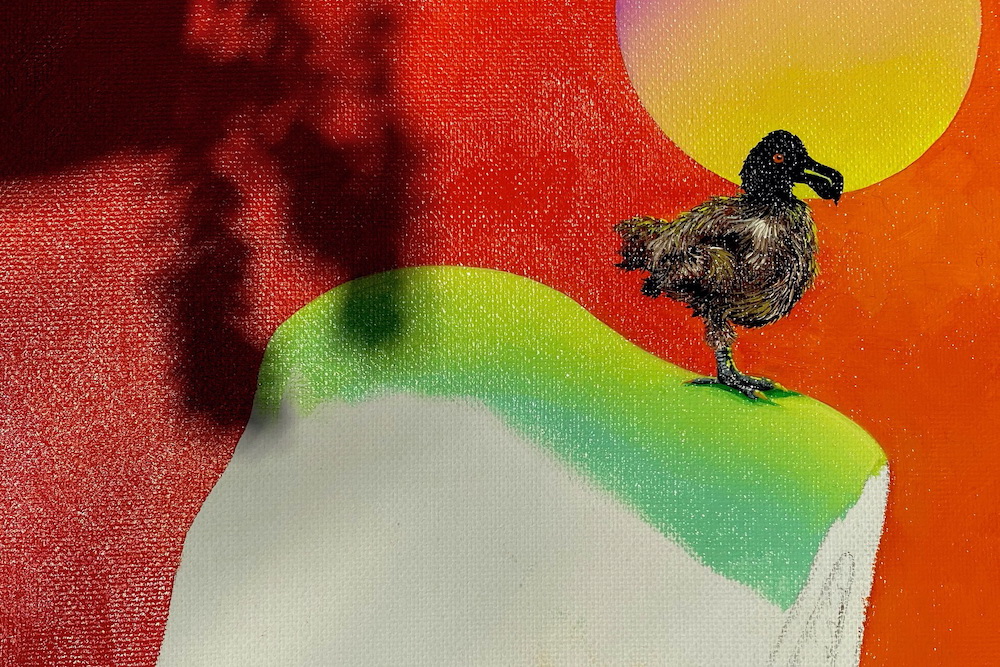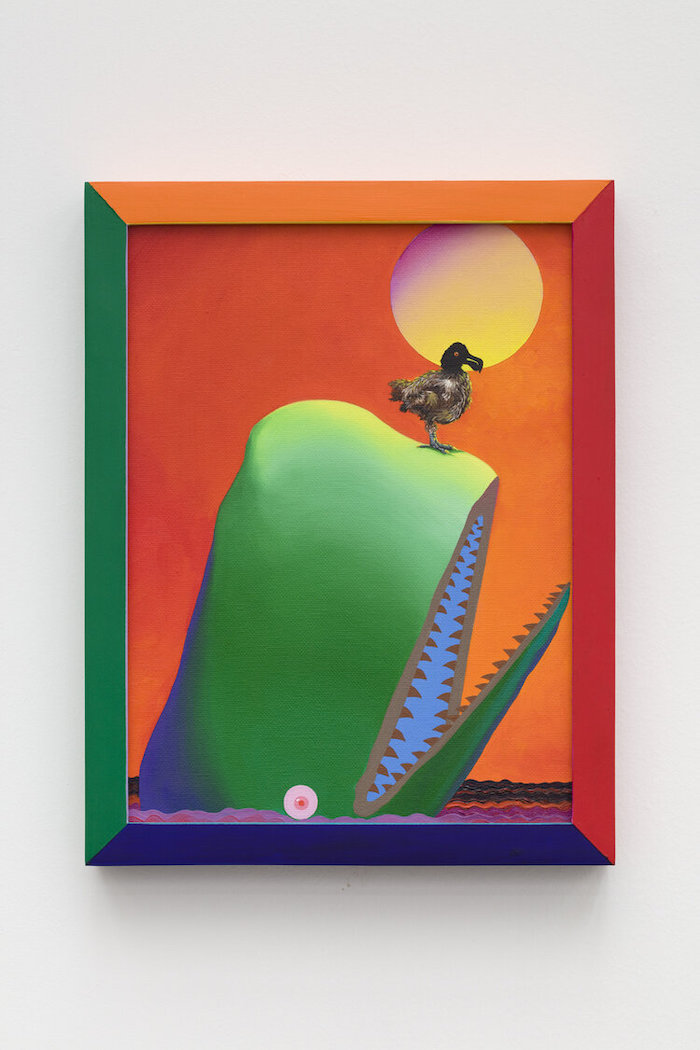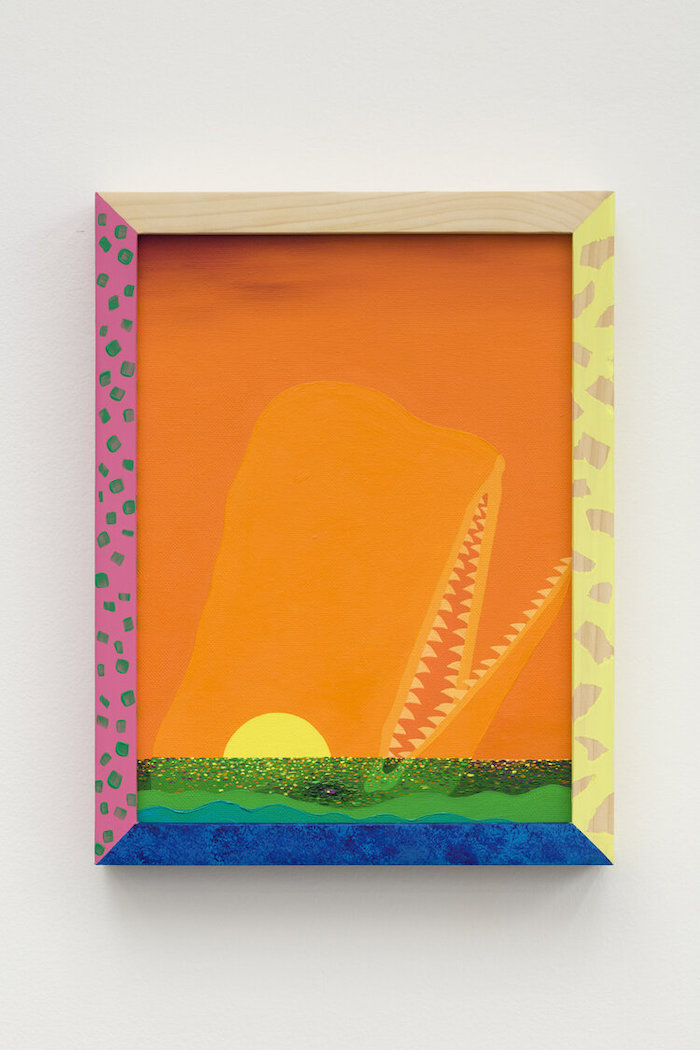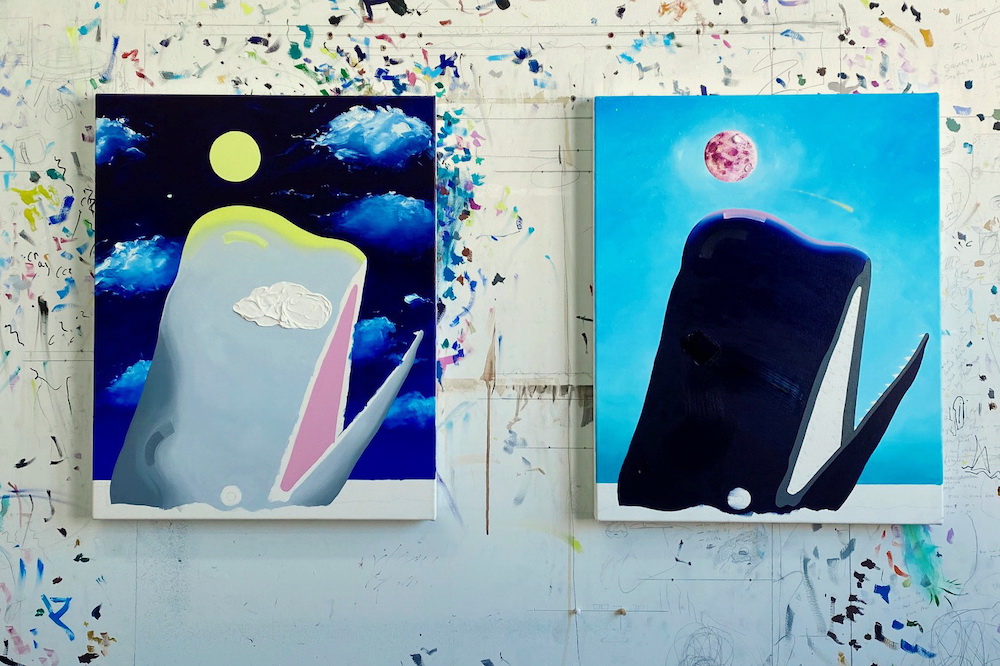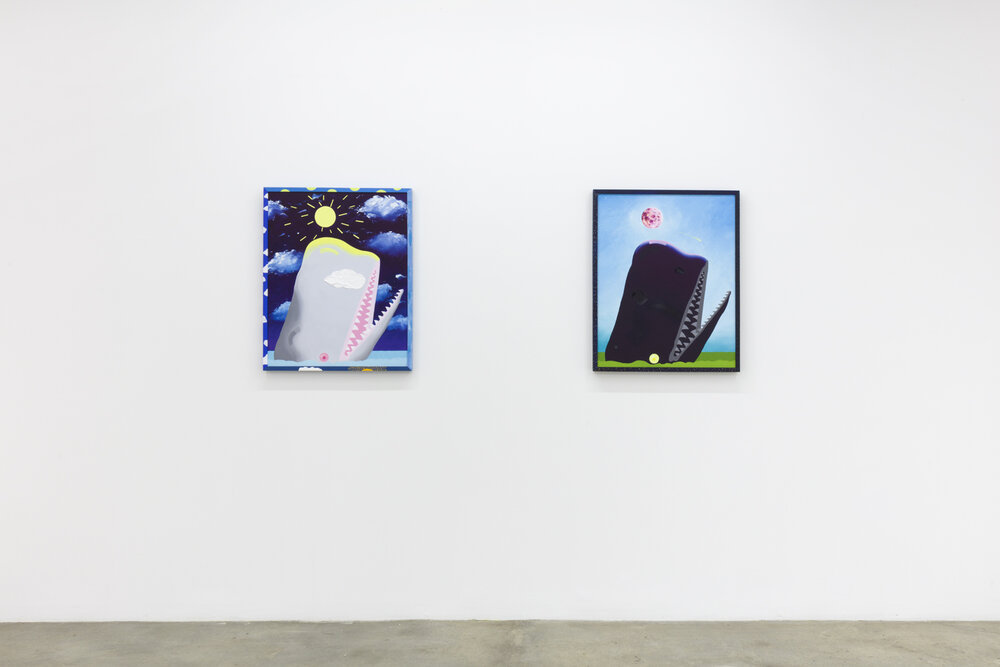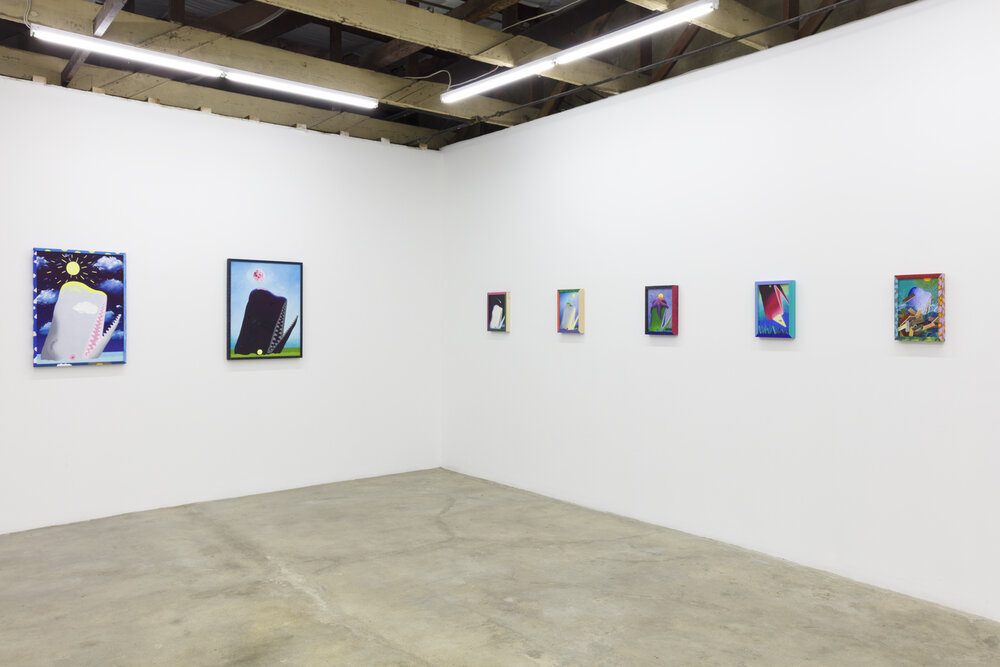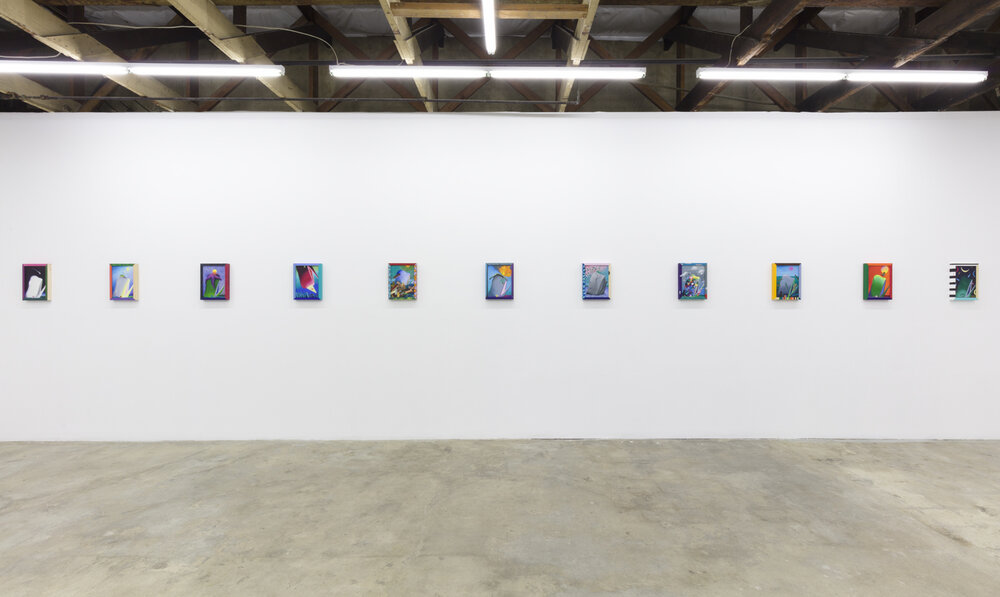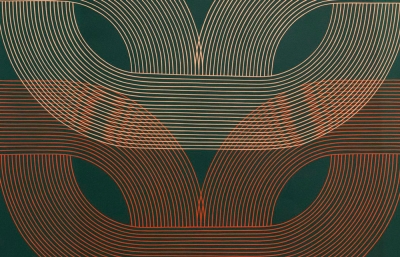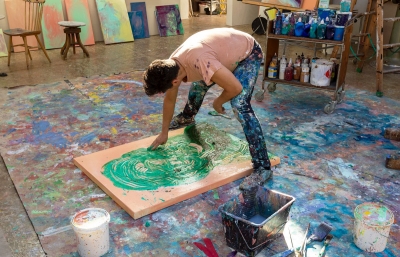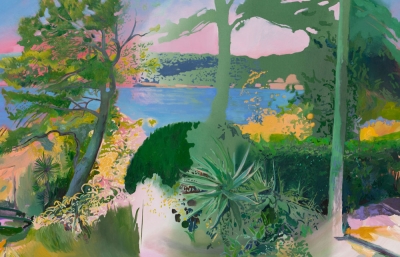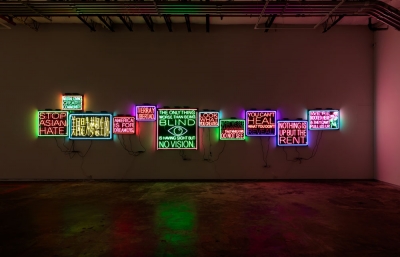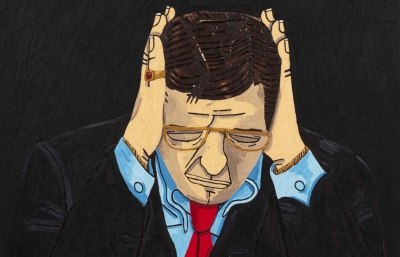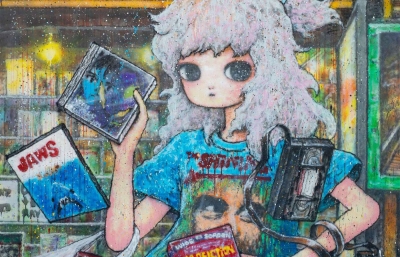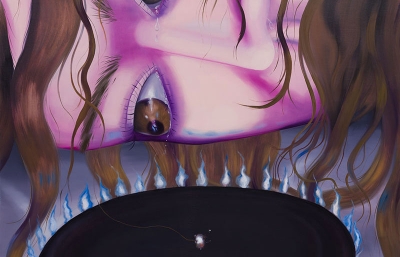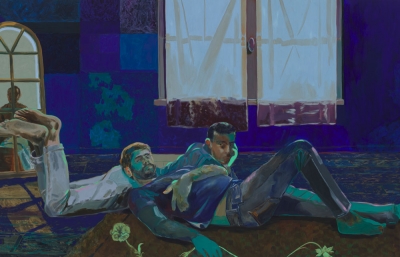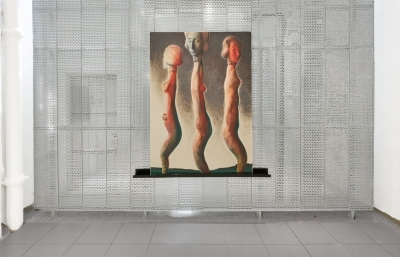"Quarantine has really just become a strange extension of a difficult year," Craig Kucia sighed when we checked with him recently for Art in Uncertain Times. We originally wanted to get in touch intending to talk about his solo show Whales at The Pit in LA, but delving deeper we realized there is a much bigger story that needs to be told.
Like others, Kucia’s plans were thwarted by the pandemic. "My show with The Pit was supposed to open in April but was delayed because of the virus and now opens September 15th. I've been essentially working on that, and honestly, the whole summer probably would have just been me in the studio one way or the other." Whales features a series of all-new work where the artist explores the possibilities and techniques of the medium through the central motif of a sperm whale emerging from the ocean landscape. All painted on a small and medium scale, the canvases vary significantly in their aesthetics and approach, ranging from flat and graphic to thick impasto applications, each presented in a hand-painted artist’s frame which imbues playfulness and an even more personal touch to the series. 
For context, he explains how,"they're based on the story of the Essex whaling ship which was the inspiration for Moby Dick. Often my work uses reality as a source in order to escape it. I usually avoid making work in the context of the political moment, but as I was doing research for other ideas for an exhibition I did last year, I stumbled across some articles about the Essex, and started to find that that story really resonated with the current times." What at first look appears to be a technical exercise, in reality, carries an expanding theme, and the repetitiveness reinforces its weight. "Usually, I have an idea to make a painting and move on, but with a series, the idea of repeating an image is a test in creativity, but also an opportunity to create a narrative within the construction of painting that changes every time: how much of your own psyche or thoughts unconsciously influence each work. Things happen pretty organically, and there are so many parallels now to that time. The ridiculousness of everything and the seriousness at the same time. It's so benign, but also such a loaded image."
"It’s funny how much we don’t learn from our history, and so much of what we do is governed by fear. The Essex just really lays bare the different experiences we have within the structure of the economic class and the decisions people make on all sides of that. The ship was owned by some of the richest people in the world at the time and was really ill-equipped for the job it set out for. The people on board were forced to make a lot of questionable and ultimately disastrous decisions just to earn a living or survive. I was also fascinated by the classic image from that time of a whale coming out of the water destroying the ship, it’s often a misrepresentation of a whale and at times prehistoric looking with big teeth. So I had this idea to use that image to talk about what a whale represents or what people use to represent or misrepresent things. Since the last election, you can really feel the shift in the country. My work has often talked about class and working-class structures as well as the tragic, and there really seems to be more of American awareness of the differences in class at the moment and the last few years have been tragic in many ways. I started to think more about my personal background, culpability, and the people and places I come from."
In a sense, the break has been fortuitous. "Fortunately, the body of work I’ve been concentrating on this past year and for my upcoming show has been perfectly suited for working at home during a pandemic. I usually work fairly large and this is the first body of work I’ve made on a small scale and also the first series, a series of whale paintings. My studio is in a building with many other studios and businesses and I have asthma and little kids so I’ve been extra cautious and I’ve worked entirely from home on the back porch from March until August and slowly started to work in the studio day a week after that. Really the difficult part has been the lack of isolation while working, as it’s something I’ve just become accustomed to after all these years and it’s kind of impossible when kids are present but my five-year-old paints with me often in the mornings so it’s been amazing to see her develop and to see what she comes up with to paint. "
"My father got sick suddenly in August and passed away 3 months later right before Thanksgiving," relates about the difficult period he experienced a year ago. "We were barely in LA between August and January, so quarantine has really just become a strange extension of a difficult year. Ultimately the worst part of the pandemic for me has really been the extra time to dwell. Because there are fewer events and daily distractions, and even though every day is still busy, everything has kind of slowed down and I found that the loss of my dad didn’t really hit me until the pandemic struck. Even though it’s been almost a year now I find myself thinking of him often as I work as, and as well, I’ve had a rekindled love of 60s music, the nostalgia of sitting in the car with my parents as a child as the radio played. It's kind of sad, but comforting during these times." —Sasha Bogojev

